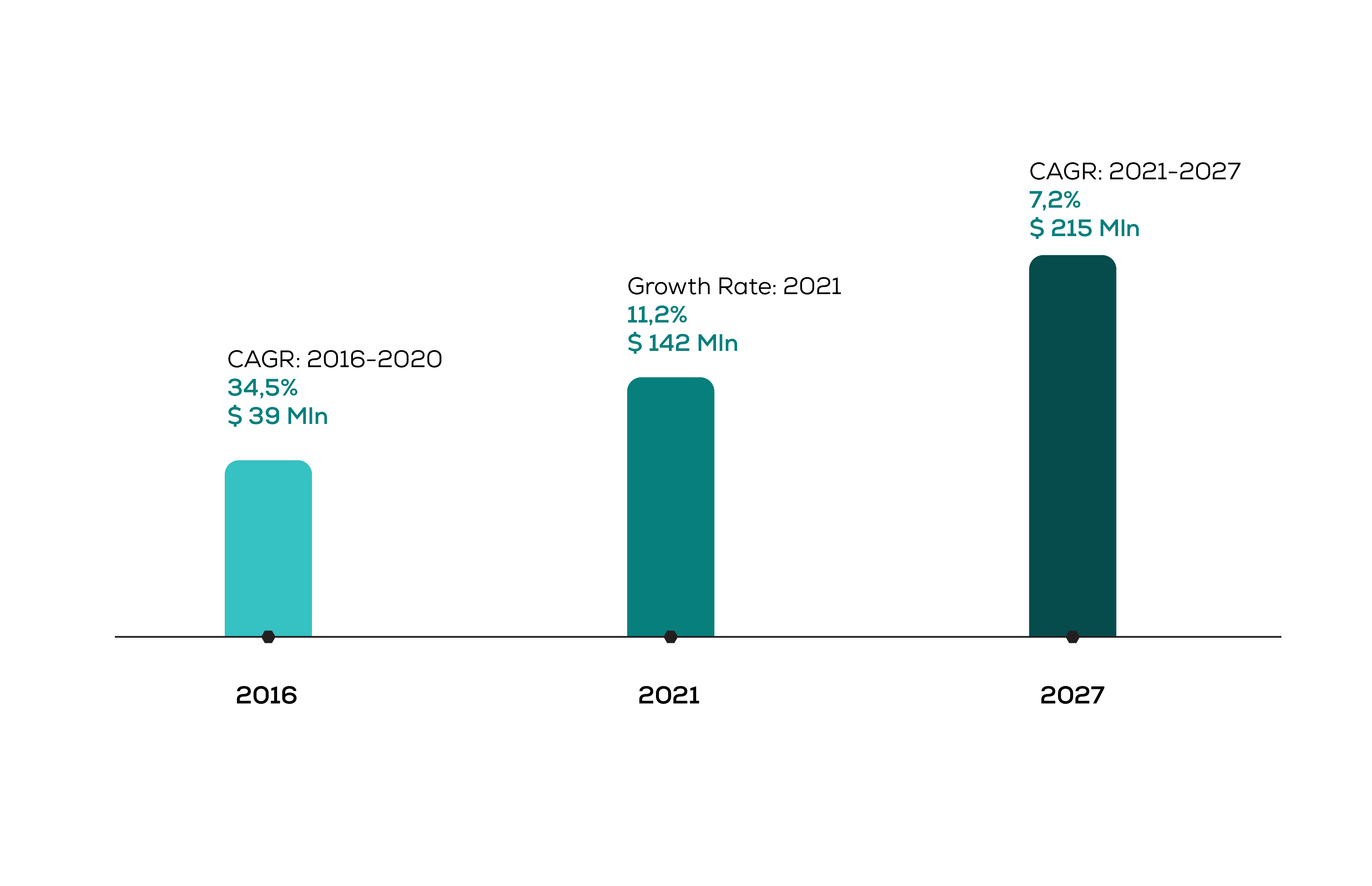Vitamin K2
The Health effects of Vitamin K2
Bone Health
The research indicated that vitamin K2 enhances osteocalcin transformation and improves the deposition of calcium into the bones. Vitamin K2 has also been proven effective for the prevention and treatment of osteoporosis. Vitamin K2 supplemention reduces serum concentrations of under–carboxylated osteocalcin and helps decrease bone loss. It is necessary in the process for absorption of osteocalcin into the bone. Vitamin K2 is essential for maintaining bone strength in postmenopausal women, and also improved bone mineral content and femoral neck width
Cardiovascular Health
The study shows that people who consumed most vitamin K2, had a 50% reduced risk of arterial calcification and also a 50% risk reduction for cardiovascular, and 25% reduction of all-cause mortality”
Kidney Health
The research have observed a downward trend in Gas6 with increasing dose of vitamin K2, showed a significant positive correlation. Vitamin K2 supplementation may reduce the risk of vascular calcification in Hemodialysis patients with kidney disease!
Liver Health
Vitamin K2 treatment enhances liver regeneration, which is associated with expansion and matrilin-2 up-regulation”
The vitamin K2 actions can effectively inhibit the growth of liver cancer cells and decrease the risk of liver cancer by 20%.
Adjuvant Treatment of Parkinson’s Disease
Vitamin k2 can improve electron transport in the mitochondria and cures mitochondrial dysfunction to solve the defect of PINK1 gene in Parkinson’s disease”
Improve Diabetes Complications
Vitamin K2 increases insulin sensitivity, thereby helping to reduce the risk of diabetes”.
Improve Growing Pains in Children
Vitamin K2 supplements enhance osteocalcin accumulation and reduces serum concentrations of undercarboxylated osteocalcin
Improve Muscle Spasms
Vitamin K2 (MK-7) can accelerate blood flow in arm and thigh and reduce muscle spasms and pain caused by vascular calcification!””
Active Target for Vitamin K2
There are currently 17 different vitamin K-dependent proteins known, which means that vitamin K2 will be one of the most important cofactor for growth and metabolism of human cells. In the future, there will be more unknown vitamin K2 dependent proteins waiting to be discovered, thus demonstrating the increasingly extensive physiological activity of vitamin K2.
General information
Vitamin K2, also known as menadione, is a fat soluble vitamin and one of the important vitamins indispensable to the human body.
In the human body, vitamin K2 is mainly synthesized by intestinal bacteria, and also exists in some animal meat products and fermented products, such as animal liver, fermented dairy products and cheese, among which natto is the most abundant source.
Source
K vitamins were discovered, K stands for “koagulation”
Vitamin K was considered for over a half century only to be important for normal blood clotting
With the recent disconvery of the vitamin K-dependent proteins MGP and Osteocalcin, K-vitamins have received more attention
Vitamin K2 essential for calcium utilization
Regulations

On June 30, 2016, the China Health and Family Planning Commission issued Announcement No. 8 of 2016, approving vitamin K2 (fermentation method) as a new variety of nutritional fortifier.
Menaquinone-7 obtained FDA GRAS certification
The nutritional health claim of Menaquinone-7: cardiovascular health, bone health
In 2001, Japan approved vitamin k2 as a drug for osteoporosis
K2 v.s K1 (Bioavailability)
Set K1 and K2(MK-7) at the same initial absorption concentration, K1 will be rapidly discharged, while K2(MK-7) will stay in the circulation for a longer time at a relatively higher concentration level, so it can be used to effectively activate osteocalcin.
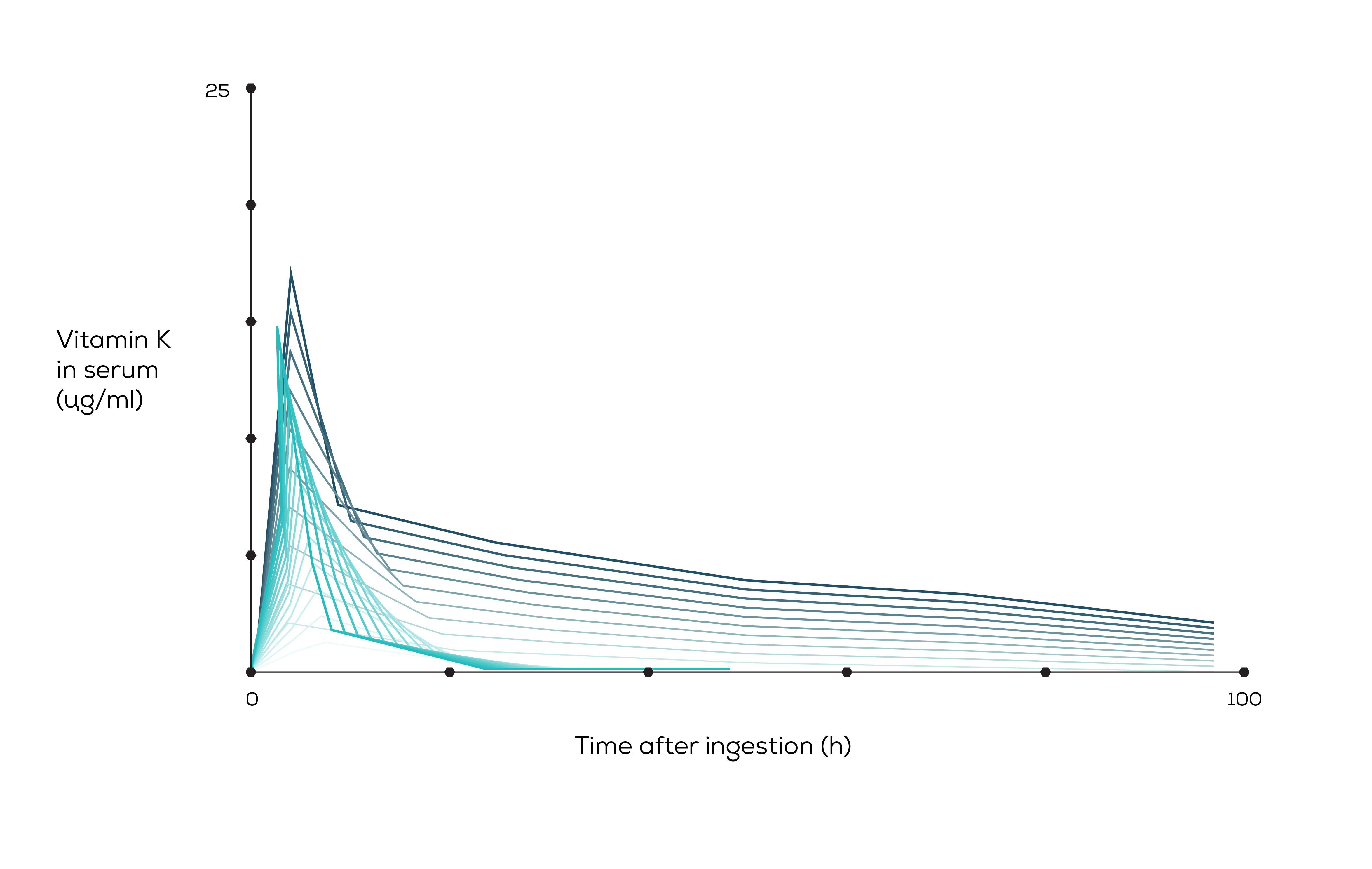
K2 v.s K1 (Osteocalcin activation)
Compared with K1, K2(MK-7) can be used more effectively. Compared with the ratio of carboxylated osteocalcin (cOC) to uncarboxylated osteocalcin (ucOC), K2(MK-7) is three times of K1, indicating that MK-7 has a higher activation efficiency
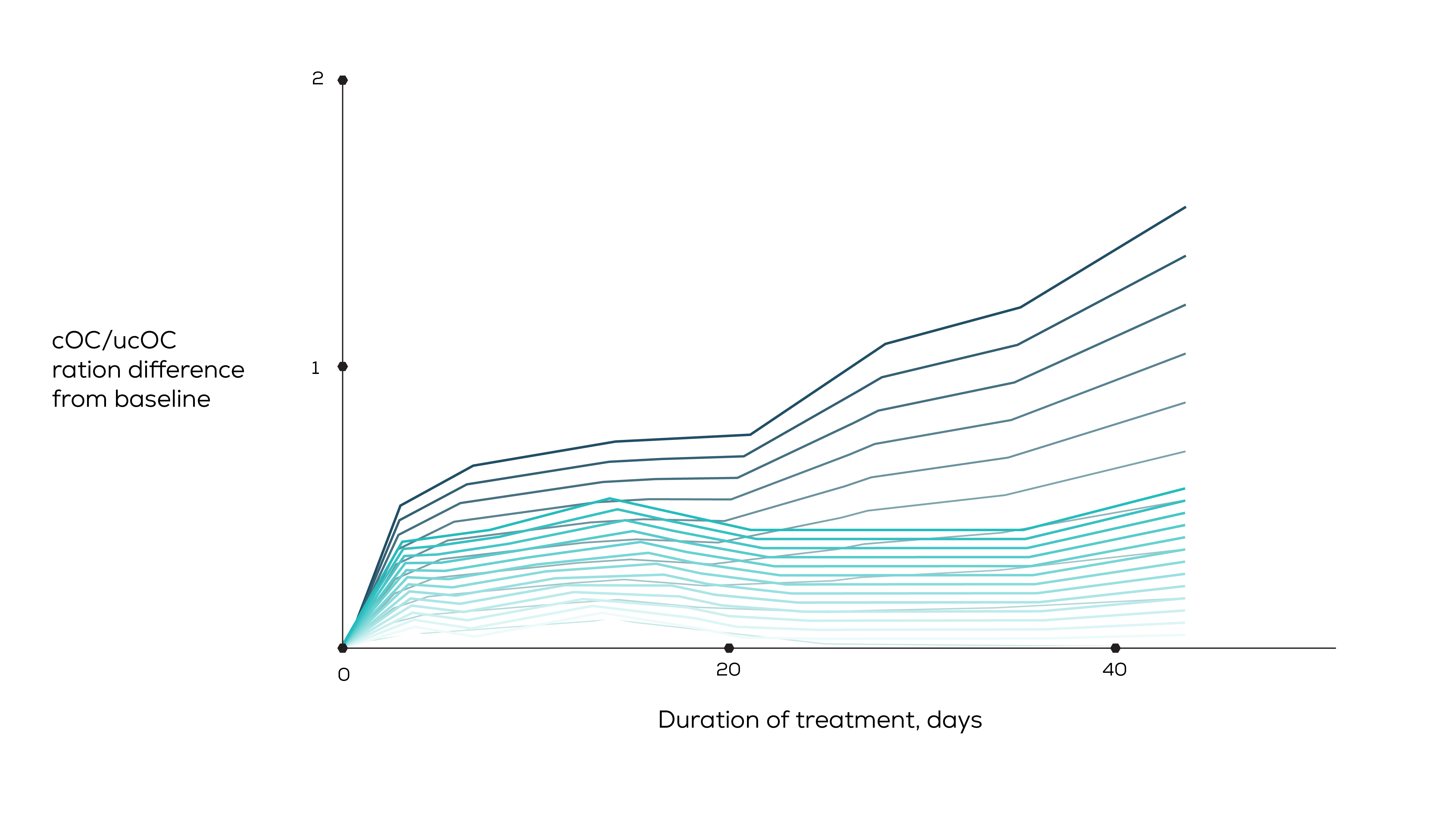
MK7 v.s MK4
The currently accepted recommendation of daily intake requires a much lower intake of MK-7 compared to MK- 4 for the same effects. Recommended dosage of MK-4 is ~45,000 micrograms/day whereas MK-7 is ~45 micrograms/day. That is a 1000 fold less requirement of MK-7 compared to MK-4. Not only is less more in the case of MK-7 compared to MK-4, but both MK-7 absorption and the lasting benefits in circulation are far superior to MK-4. Much of this reasoning has been attributed to MK-7’s proper carbon side chain length. The proper carbon length of MK-7 allows for long lasting and more efficacious vitamin K2 compared to MK-4. This makes MK-7 more bioavailable and apperaling in supplementing our diets.
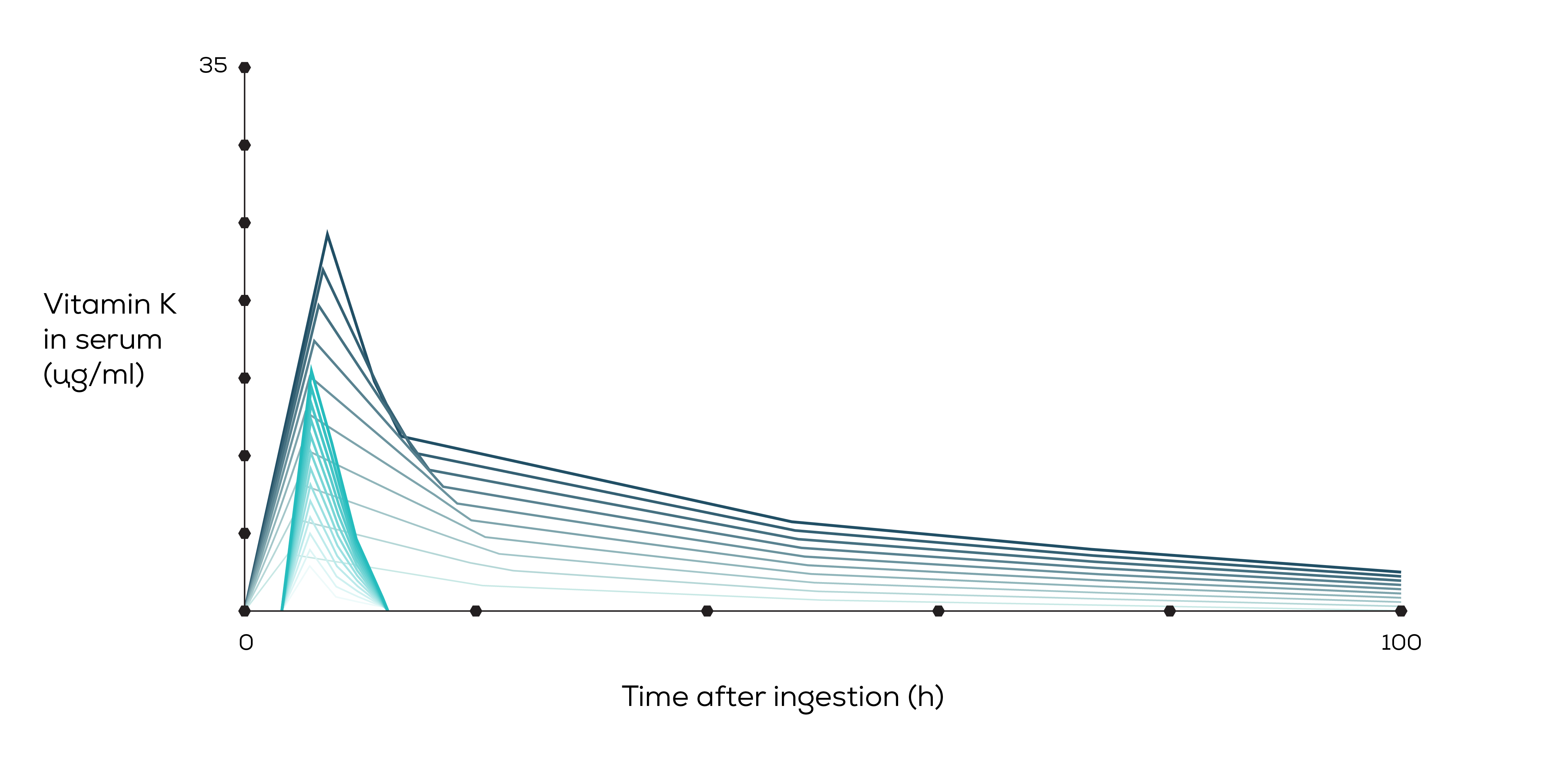
Vitamin K2 (MK7)
Bone health
Cardiovascular Health
Improve bone density
According to the results of multiple randomized controlled trials with ≥ 100 subjects and a research period of ≥ 3 years, vitamin K2 can reduce the level of uncarboxylated osteocalcin regardless of the dose, and bone mineral density of some subjects has slightly increased. High dose of vitamin K2 can improve the bone strength of femoral neck and reduce the incidence of fracture.
| Source | Research object | n | Time | Uncarboxylated osteocalcin level | Total osteocalcin level | Other conclusions |
Knapen et al (2007) | Healthy postmenopausal women | 257 | 3 year | Reduce | Rise | Femoral neck width and strength improvement |
Shiraki et al (2000) | Postmenopausal women with osteoporosis | 190 | 3 year | Reduce | Rise | None |
Inoue et al (2009) | Postmenopausal women with osteoporosis | 4015 | 3 year | Not evaluated | Not evaluated | The incidence of clinical fracture is reduced, and the incidence of secondary vertebral fracture in patients with partial vertebral fracture is reduced |
Protect blood vessels
Matrix Gla protein (MGP) is a vitamin K dependent, natural calcification inhibitor, which exists in the vascular wall and can be activated (carboxylated) by vitamin K. Carboxylated MGP migrates calcium in arteries and blood vessels and returns it to the blood stream, so it can be used by other systems, such as bone formation. Arterial calcification is a process of active regulation. There is evidence that healthy arterial tissue contains 100 times more vitamin K2 than calcified arteries. Adequate vitamin K2 supplementation helps protect blood vessels.
| Source | Research object | n | Time | Other conclusions |
| Rogier et al(2014) | Chronic hemodialysis patients | 200 | 8 weeks | The increase of the pharmacological dose of vitamin K2 can effectively reduce the level of inactive MGP. Vitamin K2 may be a new method to prevent vascular calcification in chronic hemodialysis patients |
| Ralf et al (2012) | Long term dialysis patients over 18 years old | 53 | 6 weeks | Most hemodialysis patients have functional vitamin K deficiency. Daily supplementation of vitamin K2 can significantly reduce the level of inactive MGP, thereby reducing the risk of vascular calcification in hemodialysis patients |
| Johanna et al (2004) | Persons aged 55 or above | 4807 | 10 years | There was a negative correlation between vitamin K2 and the risk of death from coronary heart disease, but there was no significant correlation between vitamin K1 intake and the risk of death from coronary heart disease |
Product Advantage
Production Flow
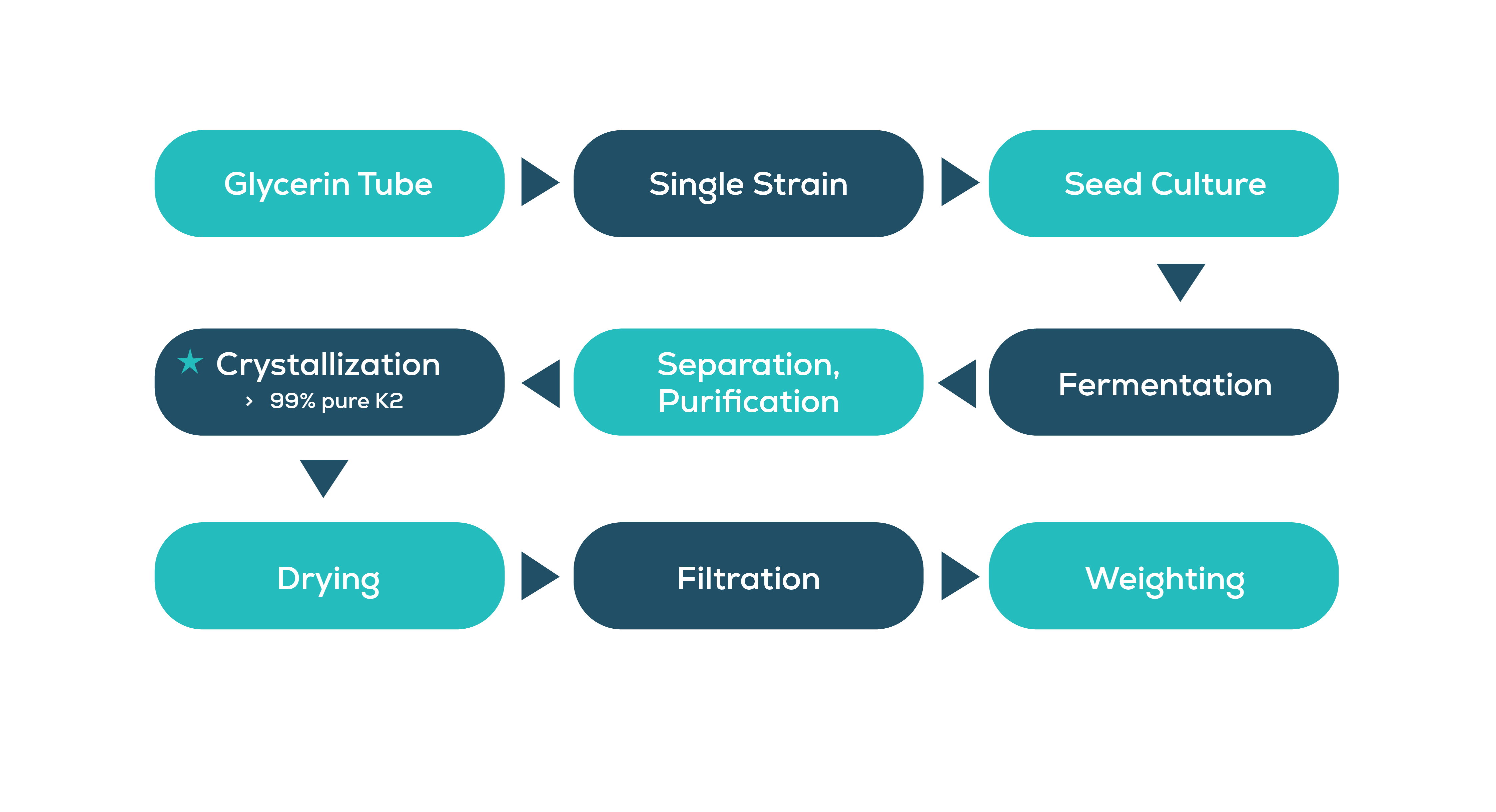
Kaiping ® Vitamin K2 Specifications
| Product model | Package | Excipient |
|---|---|---|
| Kaiping® Vit.K2 M-type powder | 1kg×10 bags/box 5kg×2 bags/box | MCC Premix blending (regular) |
| Kaiping® Vit.K2 P-type powder | Ethyl cellulose embedded (micro-encapsulated) | |
| Kaiping® Vit.K2 F-type powder | MCT embedded (micro-encapsulated) | |
| Kaiping® Vit.K2 O-type Oil | 1kg×6 bottle/box20kg×1 bottle/box | Olive oil |
| Kaiping® Vit.K2 S-type Oil | Soybean oil | |
| Kaiping® Vit.K2 T-type Oil | MCT oil |
Kaiping® Vitamin K2 Features
+ NON-GMO
+ No syntheic process
+ No additives and preservatives
+ No bacterial nad solvent residues
+ Kosher / Halal approved
+ Meet USP and higher standard
Advantages
Naturally fermentation All-trans MK7
Micro-encapsulation water dispersible workmanship
High stability 12-M degration only 0.4% (for oil)
Support customization (assay and excipient)
Application
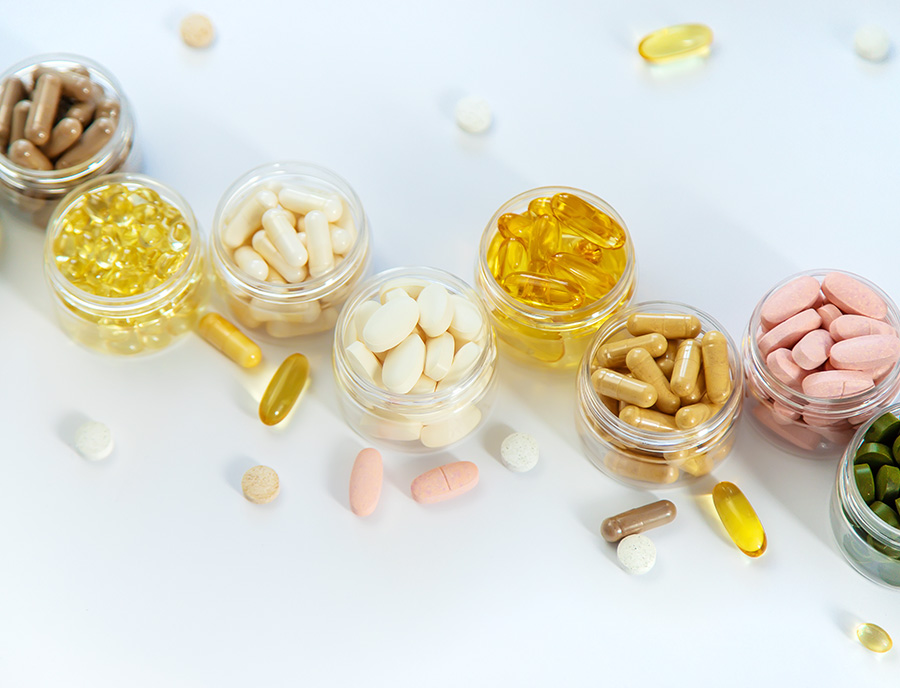
Food supplements
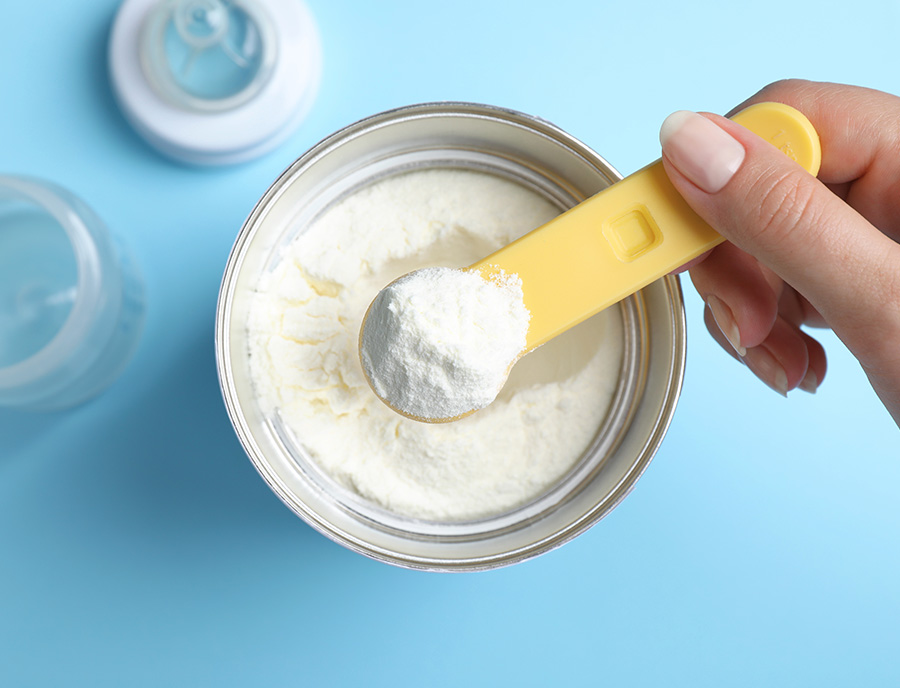
Milk powder

Drug
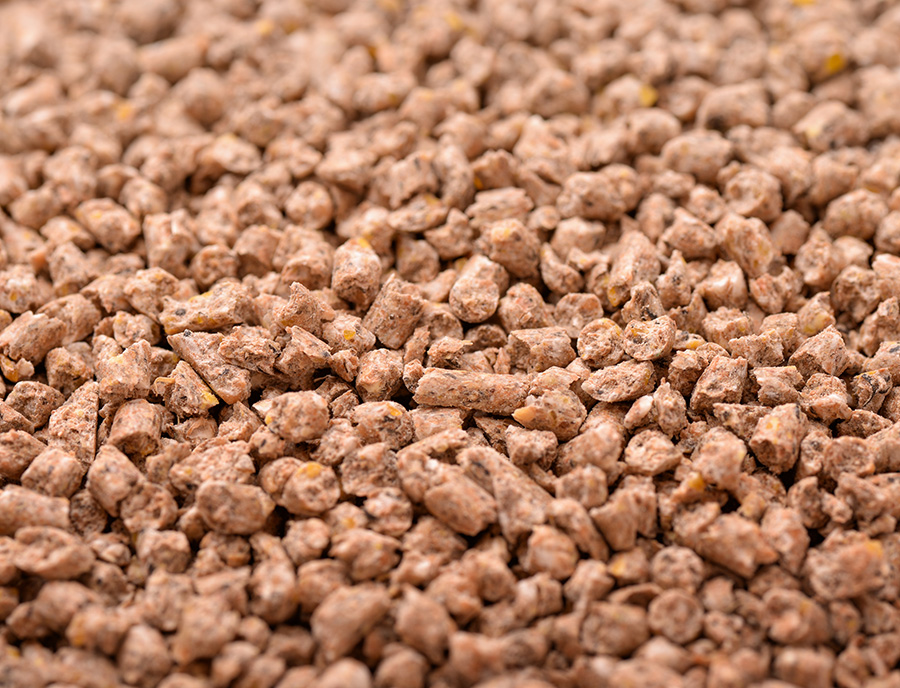
Feed
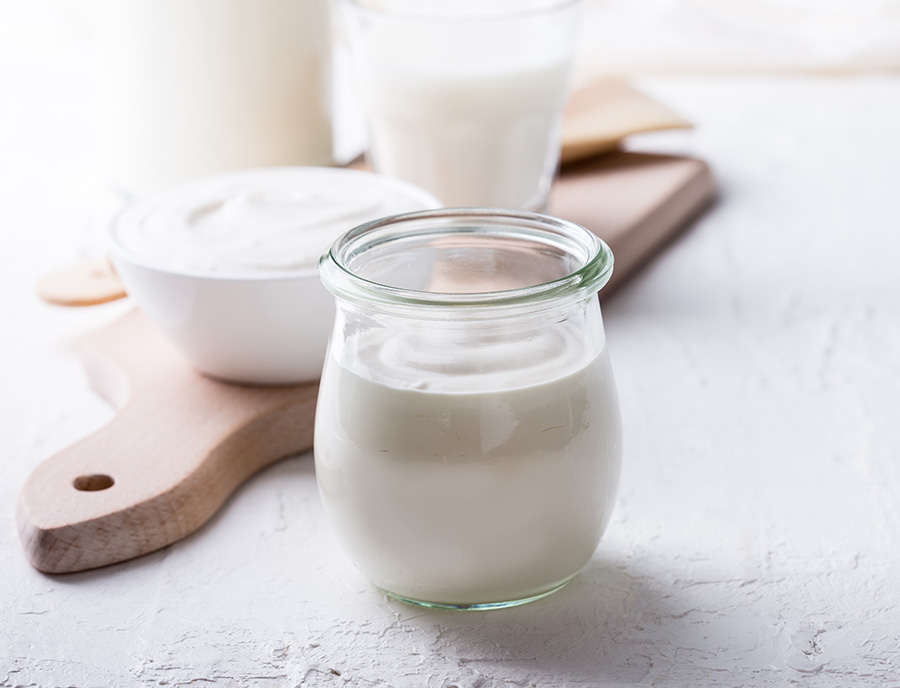
Yogurt

Bevarge
Vitamin K2 Market research
The global Vitamin K2 market was valued at USD 142 million in 2020 and is expected to reach USD 215 million by the end of 2027, growing at a CAGR of 7.2% between 2021 and 2027.
